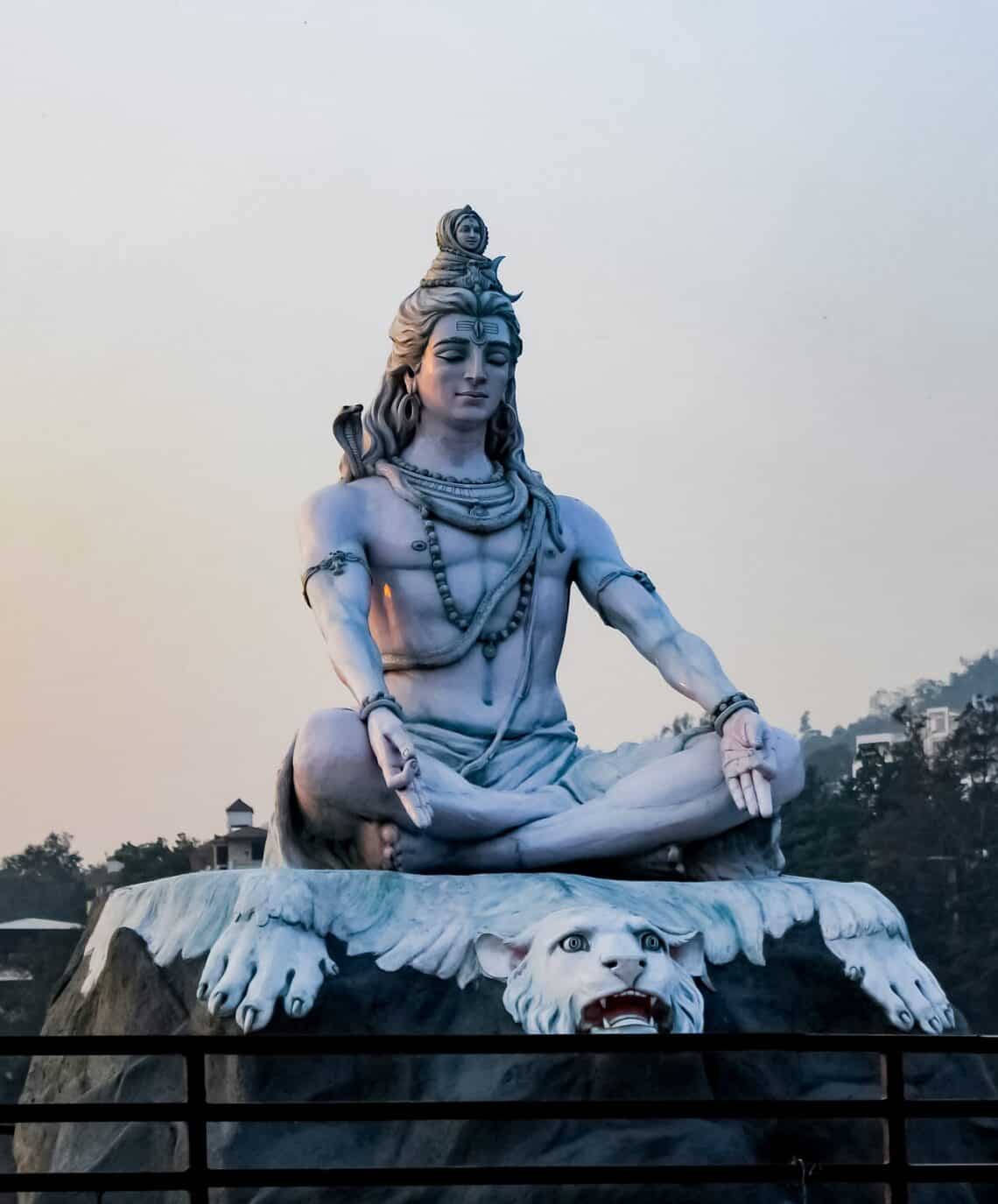
All about Shiva – Part 4
Shivji is, in reality, a master of spiritual practitioner and is ever engrossed in the meditational concentration of the Supreme Lord.

Shivji is, in reality, a master of spiritual practitioner and is ever engrossed in the meditational concentration of the Supreme Lord.

Shiva is mythologically represented in a variety of forms: in a pacific mood with his consort Parvati and son Skanda, as the cosmic dancer (Nataraja), as a naked ascetic, as a mendicant beggar, as a yogi, as a Dalit (formerly called untouchable) accompanied by a dog (Bhairava), and as the androgynous union of Shiva and his consort in one body, half-male and half-female (Ardhanarishvara).

Shiva is a derivative of Vedic Rudra. Rig Veda has three hymns and a complete chapter (16th) in Yajurveda called Rudraardhyaaya dedicated to Rudra and his beautiful form.

The meaning of the word Shiv is ‘the benevolent’, and in Sanskrit, it means ‘auspicious one’. In this sense, Shiv is actually a synonym word for the Supreme Lord as he is a gauge less ocean of benevolence.

As hymns of primaeval knowledge or greatest wisdom, Vedas were part of the Cosmos from the beginning of its coming into existence.

In the absence of a pragmatic approach of Science, spiritual Science comes into the picture. Our scriptures contain logical and scientific explanations about the origin and end of the Universe.

The world is divided into theists (believers) and atheists (non-believers). I am sure all understand belief or non-belief in what! The believers attribute the origin of the Universe to a super-intelligent principle.

Science has become a part of life in modern times. Scientific discoveries and technological advancements are influencing humans in every walk of life. There are unlimited means and sources of entertainment, and the advent of information technology has helped spread messages worldwide in no time.

Science, over the years, has become an exciting part of our lives. Scientific discoveries and technological developments have influenced every walk of our life. There are unlimited means and sources of entertainment, and the advent of information technology has helped spread messages worldwide in no time.

Spiritual people are as common as all people and difficult to identify from the crowd. They are usually free of outward ostentatious adorations like particular coloured attire, beard, shaved or matted hair or adorned necklaces. There is also a misconception that they stay in forests, caves, or the Himalayas. We can find spiritual people very much amongst us, but the only problem is we fail to recognize them.

Love is a word with different ethos in different contexts and hence much misused and misunderstood. The most trivial love is our love for worldly objects and individuals. Such love could be for a vehicle, a pet, a house, wealth, relations, parents, children and near and dear ones. This love is the most basic outward emotional bonding born out of worldly attachments, a part of the family or social conditioning. Another love is the attachment between individuals of the opposite sex born out of wedlock or companionship. This is also one related to the material mind.

We need to distinguish between passion and compassion. Passion is associated with body-mind, while compassion is associated with the mindless inner self. A passionate person is full of desires and hence gripped by unawareness. A compassionate person is rooted in desirelessness and awareness.

There are two types of people; the worldly (material) and the spiritual- the outward and inward. The former prioritizes the body and mind while the latter gives precedence to the soul and Supersoul.

Have you ever pondered why some individuals are successful and excel in various spheres of life? Why do most individuals live an ordinary life without much credit or recognition? Is success or excellence a mere act of luck or a random event touching some people? When viewed from the spirituo-scientific way, it may seem that the so-called chance is merely an act of past good karma. Mundane, ordinary life may seem then as an act of no-good karma. However, karmas are our actions of the past or the present.

I had been an early riser from early childhood as I was born into a family of early risers as a rule or discipline. This habit continued into my adulthood, and as a rule, I had to wake up before sunrise. In the early part of my life, being in a village background, my family members used to rise early, take a bath and start their chores and rituals, may it be household activities or religious practices. I could see that all men around me never let the Sun catch them in bed. They never did dilly dally in bed and used to spring into action.